Looking Up, 16-page English PDF Edition, Back Issues and Current Issue
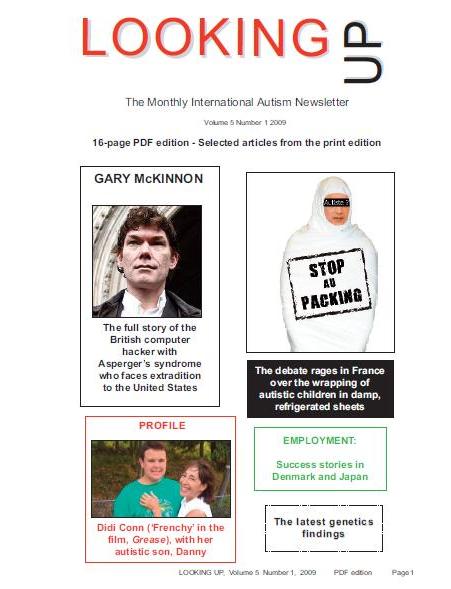
|
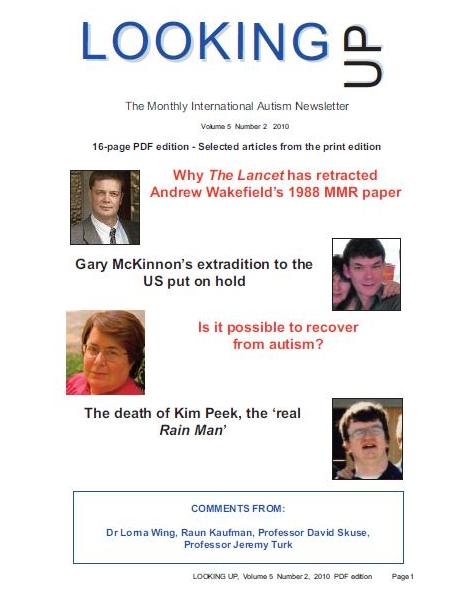
|
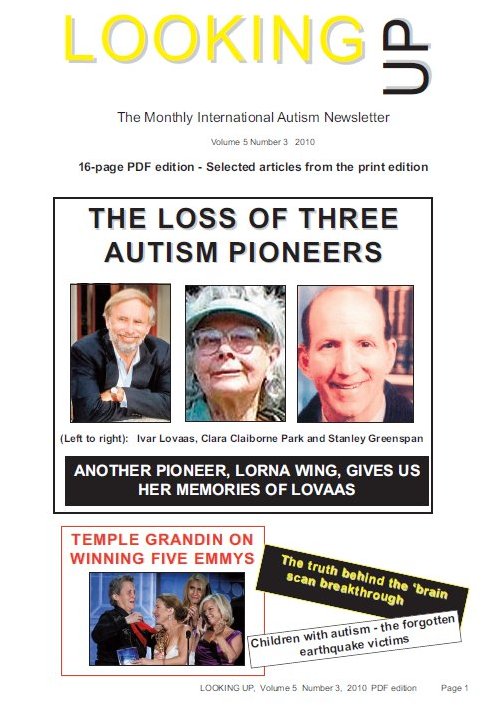
|
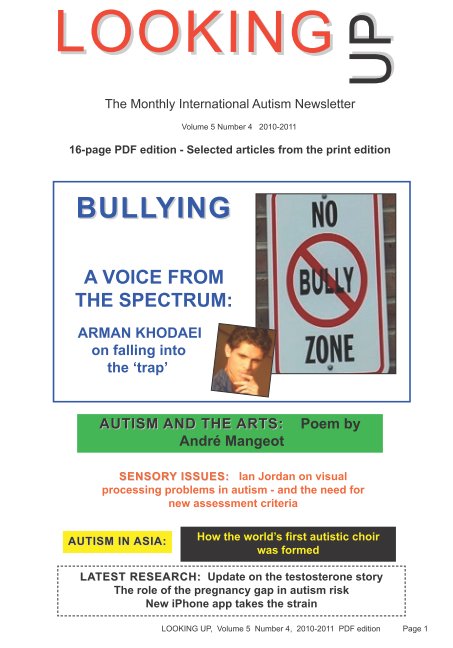
|
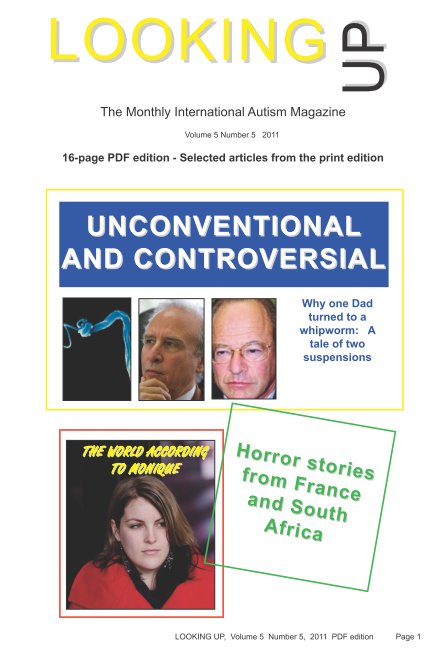
|
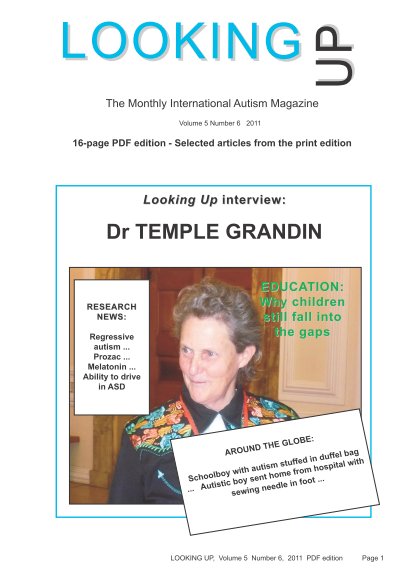
|
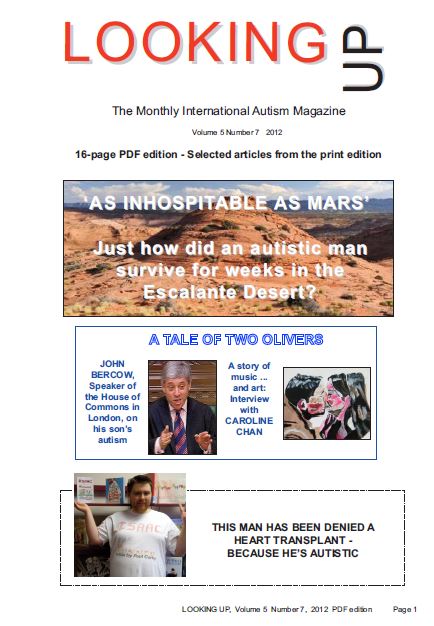
|
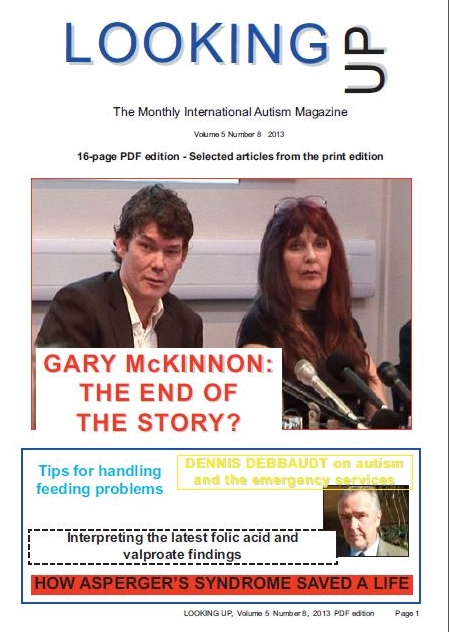
|
| Home page | Subscribe (print edition) | Selected articles | Our publications | Our mailing lists |
| PDF edition | Subscribe (PDF edition) | Back issue contents | Autism books | Contact us |
From Volume 5 Number 4 (print edition only)
BUENOS AIRES, Argentina: - Nicolás Manservigi, screenwriter of El Pozo (The Well) - a new film about a young autistic woman (played by Sofía Gala) and her relations with her family - admits that he could never have imagined that “I was dealing with such a delicate topic.”
Manservigi - an Argentinian novelist, author of El Portador and Paisajes Internos - added: “At the same time, that was what attracted me - the possibility of entering the inner world of a person with autism.”
El Pozo - directed by Rodolfo Carnevale - is the first fictional film ever made about autism in Argentina, although it is loosely based on Carnevale’s real life family. (His 26-year-old younger brother, Guillermo, is autistic.)
Manservigi has worked with Carnevale before: their 2009 movie, Aporía, won the Best International Film award at the New York Film Festival.
El Pozo - starring Patricia Palmer, Eduardo Blanco, Adriana Aizenberg, Dora Baret and Juan Palomino - tells the story of Pilar, a 24-year-old autistic woman whose parents argue over whether they should be looking after her at home or putting her in an institution.
“Entering that world through words was very hard, because it is precisely words that they lack,” said Manservigi, on the challenges of shooting the film in the Argentinian province of San Luis.
Manservigi said it was difficult writing the script on such a sensitive theme. “Writing carries a great responsibility, because words are a powerful weapon. The process of research and writing took many months. We didn’t want to slip into clichés, so we were careful to try and pick up on all the details. The actors themselves also did a lot of research into autism and were very moved by what they discovered.”
For his part, when ssked about his family’s reaction to the news that he was making a film featuring autism, Rodolfo Carnevale declared: “It came as a shock at first - they were totally unprepared. Then they came round to the idea and went so far as to say they wanted me to make a movie that was completely autobiographical. And they’re very happy with how the film turned out.”
Carnevale himself went through different stages, oscillating between a temptation to abandon the project altogether and the need to depict his inner feelings and his family’s experiences. “That’s how the story started to take shape, and it shifted from autobiography to fiction. That allowed me to view the story from outside and approach the fictional family’s challenges objectively.”
To do this, Carnevale created the character of Pilar, a 24-year-old woman who was diagnosed with autism at the age of four. She has a yearning to become a ballerina, but begins to believe she can achieve her ambition only after a chance reunion in the clinic with Ramón, a 29-year-old man with mental retardation whom she has known since childhood.
Carnevale worked closely with the actress playing Pilar, Sofía Gala, whom he persuaded to investigate the subject of autism, watching other films and documentaries and visiting autism homes
One of Carnevale’s greatest hopes is that his movie will contribute to social awareness of autism. “My wish is that the film might generate a greater interest in the topic. That is vital if we are going to fight discrimination and change the view of children with autism as ‘strange.’ If this view changes, people will discover that they are very tender human beings, that they have a great deal to offer from a different sensibility.”
Carnevale added: “Members of the audience who already live the reality of autism will identify with the quest of an indefatigable mother who never gives up and always aspires to the best for her daughter. But this film is mainly aimed at those parents without experience, who don’t know what to do when they have a child with autism, so that they can overcome the obstacles and acquire greater understanding.”
Carnevale believes it is very important to emphasise the value of education and a more clearly defined social awareness of disability, as well as to tap into the climate of acceptance of such topics among cinema audiences.
Making her cinematic debut in El Pozo is Natalia Denegri, who has been the patron of AUPA - an Argentinian foundation for autistic children - for many years. She was deliberately chosen by Carnevale for her commitment to autism. She plays Sandra, an occupational therapist in a home for autistic children who is put in charge of helping Pilar.

|

|

|

|

|

|

|

|
| Current 40-page print edition issue | |||||||||||||||
|---|---|---|---|---|---|---|---|---|---|---|---|---|---|---|---|
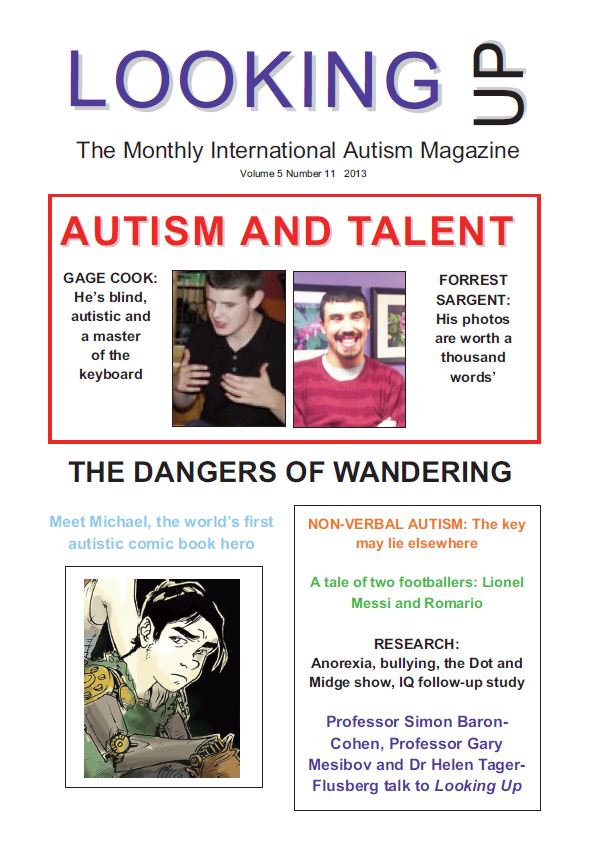
|
| ||||||||||||||
| PRINT EDITION BACK ISSUE CONTENTS AND FRONT COVERS | ||||||||||||||||||||||||||
|---|---|---|---|---|---|---|---|---|---|---|---|---|---|---|---|---|---|---|---|---|---|---|---|---|---|---|
| VOLUME 1, Number: | 1 | 2 | 3 | 4 | 5 | 6 | 7 | 8 | 9 | 10 | 11 | 12 | VOLUME 2, Number: | 1 | 2 | 3 | 4 | 5 | 6 | 7 | 8 | 9 | 10 | 11 | 12 | |
| VOLUME 3, Number: | 1 | 2 | 3 | 4 | 5 | 6 | 7 | 8 | 9 | 10 | 11 | 12 | VOLUME 4, Number: | 1 | 2 | 3 | 4 | 5 | 6 | 7 | 8 | 9 | 10 | 11 | 12 | |
| VOLUME 5, Number: | 1 | 2 | 3 | 4 | 5 | 6 | 7 | 8 | ||||||||||||||||||
| You can find our PDF EDITION CONTENTS AND COVERS on our PDF EDITION BACK ISSUES PAGE | ||||||||||||||||||||||||||
| Home page | Subscribe (print edition) | Selected articles | Our publications | Our mailing lists |
| PDF edition | Subscribe (PDF edition) | Back issue contents | Autism books | Contact us |